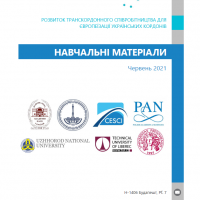Report on the Conference on Cross-Border Cooperation and Development
Knowledge sharing | 14 September 2021
Knowledge sharing | 14 September 2021
The first day of the event started with a series of welcome speeches. Péter Kiss-Parciu, Deputy Minister of State of the Ministry of Foreign Affairs, was the first one to welcome the participants. In his speech, he stressed the importance of cross-border cooperation, as a significant part of Hungary lies in the border region, which is why cross-border cooperation programmes not only have a European value, but also a significant economic and social impact.
In her welcome speech, Katalin Uzsák, Deputy Minister of State for Territorial Administration (Prime Minister’s Office), stressed that the health and economic crisis hit border regions particularly hard, which shows the importance of cross-border cooperation in reducing disparities between countries, on which the EU will spend 8 billion euros in the future. She pointed out in her speech the commitment of government offices to deepen cross-border cooperation and reduce administrative barriers.
Viktória Zöld-Nagy, Deputy Minister of State for Trade Policy and Consumer Protection (Ministry of Innovation and Technology) highlighted in her welcome speech that Hungary is a pioneer in the operation of EGTCs and that cross-border cooperation can achieve goals such as the creation of a quality workforce, the economic development of border regions, and development based on local resources, all of which serve to ensure that local residents do not have to leave border settlements.
Claudia Luciani, Director of Human Dignity, Equality and Governance Directorate of the Council of Europe, emphasised in her welcome speech that cross-border cooperation also improves democracy, as already the 1975 Madrid Treaty was designed to support grassroots initiatives to give more autonomy at a local-regional level, to local authorities.
Martín Guillermo Ramírez, Secretary General of the Association of European Border Regions (AEBR), pointed out in his welcome speech that, paradoxically, the pandemic has strengthened the EU, as it has made it possible to make decisions that were previously difficult to imagine, and also made people more supportive of cross-border cooperation, as it has become abundantly clear that certain challenges cannot be tackled by nation states alone.
Jean Peyrony, Director General of Mission Opérationnelle Transfrontalière, emphasised in his welcome speech that a new Franco-German treaty was signed in 2019 (after the previous one, the Franco-German reconciliation of the Second World War), which includes a whole chapter on cross-border cooperation, resulting in the establishment of multilevel cross-border committees. Which means that despite the challenges, work for border regions has not stopped.
The welcome speeches were followed by the István Pálfi Award Ceremony, hosted by dr. Katalin Fekete, Senior Advisor for the Ministry of Foreign Affairs and Trade. The awards were presented by Márton Sőber, Deputy Minister of State of the Ministry of Foreign Affairs, who emphasised that although the measures introduced because of the pandemic had paralysed the process of building common cohesion in border regions, solidarity had been demonstrated in many ways, including the activities of the award winners. This year’s István Pálfi Prize was awarded to dr. Bálint Márton Szűcs, head of the Interreg The V-Hungary-Croatia Cooperation Program Joint Secretariat and to Martín Guillermo Ramírez, Secretary General of the Association of European Border Regions (AEBR), for their work in making border regions more liveable.
During the afternoon, a policy session focused on the Council of Europe’s instruments to promote cross-border cooperation and presenting cooperation at the EU’s external borders. The panel was moderated by Gyula Ocskay, Secretary General of CESCI. The first presenter, Viktória Zöld-Nagy started her presentation with a historical overview of cross-border cooperation, pointing out that informal organisations had already been established along the border in 1960, followed by the introduction of the financial incentive fund introduced in 1974 to support local organisations. The main driving forces behind the Madrid Accords of 1980 were the expectations of the population and the need for lasting peace and improved living standards. The Accords and its supplementary protocols have provided a general framework for cross-border cooperation, as signers have committed themselves to supporting such initiatives. Nowadays, it is also possible for a municipality in a state that is not party to the protocol to join.
The second presenter, Alina Tatarenko, Head of the Centre of Expertise for Good Governance, talked about the role of the Council of Europe in cross-border capacity building. In her presentation, she emphasised the need to put more stress on interventions at local level, as intermunicipal cooperation at local level has immediate and tangible effects and results, and good cross-border cooperation does not only address border regions but has an impact on the whole country.
Daniele del Bianco, Director of the Institute of International Sociology of Gorizia, gave an overview of the Council of Europe’s legal, administrative, and governance instruments. He pointed out that in his experience, people and local actors do not know enough about EGTCs affecting their homes and workplaces, and that it is important to increase knowledge interaction and visibility. At the same time, he also said that if a border region is sufficiently integrated, it is able to give a joint cross-border response to unexpected challenges.
Ervin Erős, Director of CESCI Balkans, talked about his experience of the Leadership Academy Programme in the Western Balkans, an important tool for deepening cross-border relations and also for gaining new professional contacts and increasing trust, which is essential for effective interventions at local level. This was followed by a presentation by Ihor Korkhovyi, Deputy Minister for Communities and Territories Development, who talked about the Ukrainian government’s experience, emphasising that Hungarian-Ukrainian cooperation is becoming more successful as there is no tension between Ukrainian and Hungarian people at local level.
Katalin Pallai, policy expert of the Council of Europe, presented her experience of the Leadership Academy for Cross-Border Cooperation. The Academy provides comprehensive information on administrative, legal, financial, and leadership methods for successful cross-border cooperation, as well as presenting models that work well. According to the expert, the overall feedback on the programme is positive, mainly due to the fact that the modules are tailored to local needs.
Andrea Szabóné Cap, Director of Tisza EGTC, analysed the role of the association in improving the conditions for cross-border cooperation. In her presentation, she said that several conferences on the Transcarpathian integration of Ukraine have been organised in recent years and recommendations for cooperation in partnership with different organisations have been made. The main objectives of Tisza EGTC are to promote economic and social cohesion, to protect the river Tisza and its tributaries, to strengthen the energy, logistics, tourism, and cultural sectors. The biggest advantage of the EGTC is that it solves problems at a local level.
The closing presentation of the session was delivered by Sanda Šimić Stambolić, Assistant Director of the Department for Cross-border and Transnational Cooperation Programmes (European Integration Office, Republic of Serbia), who examined the impact of EU funds on cooperation between cross-border municipalities and between people. In her presentation, she noted several positive effects of these instruments, such as bringing people closer, reducing prejudices and the negative impact of the border, providing funding and supporting the adaptation of EU values.
The conference continued on 10 September 2021 with a policy session on local development and cooperation between authorities. The first presenter, Gergely Gaál, Ministerial Commissioner (Prime Minister’s Office), gave an overview of government resources and the Hungarian Village Programme, which strengthen local development in a cross-border relation. The Hungarian Village Programme is implemented exclusively from domestic sources with 100% aid intensity, responding to local needs. Based on the payments made so far, almost 11% of the supported municipalities lies in the border region, which have received HUF 26.1 billion in support so far. The presentation also covered the Rural Civil Fund, the Rural Family Housing Allowance (CSOK), and the rural road fund.
Árpád Takács, Government Commissioner of Békés County, talked about a sustainable authority environment in the light of Hungarian operational programmes and direct EU funds. He emphasised the importance of the implementation of one-stop administration and the integration of administration, for which the government offices were established. The aim is to create a competitive and sustainable public administration, define official functions, reduce bureaucracy, standardise administrative actions, and improve the collection of statistical information.
Tamás Pilz, Head of Department of Territorial Strategy (Prime Minister’s Office) talked about cross-border cooperation between authorities. In his presentation, he stressed that the economic and health impact do not stop at the national border, which is why cross-border cooperation should be prioritised.
Ferenc Gyergyák, Secretary General of the Hungarian National Association of Local Authorities (TÖOSZ), talked about the role of the Association in cross-border cooperation. TÖOSZ, as the largest municipal representative body in Hungary, fulfills a number of tasks, such as managing the twin town’s database, managing the European Label of Governance Excellence (ELoGE) initiative, and providing municipal advisory service.
The two-day event closed with a reception.

 Training material to improve the capacity of Ukrainian local actors
Training material to improve the capacity of Ukrainian local actors